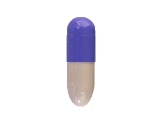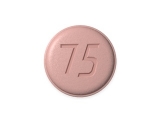Erectile disorder icd 10
Male sexual dysfunction can be embarrassing and frustrating for many individuals, but it's important to understand that it's a common problem that affects many men. Erectile disorder in particular is a diagnosis included in the International Classification of Diseases, 10th revision (ICD-10).
ICD-10 is a set of diagnostic codes used by healthcare providers to classify and code patient symptoms and diagnoses. The classification for erectile disorder falls under the "Disorders of Sexual Development and Functioning" category.
Understanding the classification of male sexual dysfunction can help individuals take the first step in seeking help and treatment for their condition. It's important to note that erectile disorder can be caused by a variety of psychological and physical factors, and treatment options may vary depending on the individual case.
"Seeking help for erectile disorder can be a difficult but important step towards regaining sexual functioning and improving overall quality of life."
If you or a loved one are experiencing symptoms of erectile disorder, it's essential to speak with a healthcare provider who can properly diagnose and treat the condition. Don't suffer in silence, seek help today.
Understanding Erectile Disorder ICD-10
What is erectile disorder?
Erectile disorder, also known as erectile dysfunction, is a type of male sexual dysfunction characterized by the inability to achieve or maintain an erection sufficient for sexual intercourse. It affects millions of men worldwide, and can be caused by a variety of factors such as physical, psychological, or medication-related issues.
How is erectile disorder classified in ICD-10?
ICD-10, or the International Statistical Classification of Diseases and Related Health Problems, is a medical classification system used worldwide to code and classify diseases and health problems. Erectile disorder is classified under the ICD-10 code F52.2, which falls under the category of "sexual dysfunction not due to a substance or known physiological condition."
Understanding the classification of erectile disorder in ICD-10 can help healthcare providers accurately diagnose and treat the condition. It can also help researchers and policymakers gather data and develop effective strategies for addressing this widespread issue.
How can "Understanding Erectile Disorder ICD-10" help?
If you or a loved one is struggling with erectile disorder, it can be a difficult and isolating experience. "Understanding Erectile Disorder ICD-10" can provide valuable information and resources to help navigate this condition and its impact on overall health and well-being.
- Learn more about the physical and psychological causes of erectile disorder.
- Explore treatment options, including medication, therapy, and lifestyle changes.
- Find support from healthcare providers, peer groups, and online communities.
- Stay informed about the latest research and advancements in the field.
By understanding the classification of erectile disorder in ICD-10, individuals and healthcare providers can work together to improve diagnosis and treatment outcomes, and ultimately improve quality of life for those affected by this condition.
What is Erectile Disorder?
Understanding the Symptoms
Erectile Disorder, also known as Erectile Dysfunction, is a condition that affects a man's ability to achieve or maintain an erection during sexual activity. This can cause significant distress and lower self-esteem for those affected. Common symptoms include difficulty getting an erection, trouble maintaining an erection, or a decreased desire for sexual activity.
Causes of Erectile Disorder
Erectile Disorder can be caused by physical, psychological, or lifestyle factors. Physical causes may include diabetes, high blood pressure, cardiovascular disease, or injury to the penis. Psychological causes may include anxiety, depression, or stress. Lifestyle factors such as smoking, excessive alcohol consumption, or drug use can also contribute to Erectile Disorder.
Treatment Options
There are several treatment options available for Erectile Disorder, including medication, therapy, and lifestyle changes. Medication such as Viagra, Cialis, or Levitra can help increase blood flow to the penis, aiding in achieving and maintaining an erection. Therapy can also be helpful in addressing psychological causes such as anxiety or depression. Lifestyle changes such as quitting smoking, limiting alcohol consumption, and increasing exercise can also have a positive impact on Erectile Disorder.
Take Action
If you are experiencing symptoms of Erectile Disorder, it is important to talk to your healthcare provider. They can help diagnose the underlying cause of your symptoms and recommend appropriate treatment options. Don't suffer in silence, take action and take control of your sexual health.
- Don't let Erectile Disorder take control of your life.
- Understand the symptoms and causes.
- Seek treatment to improve your sexual health.
The Importance of ICD-10 Classification
Accurate Diagnosis and Treatment
- ICD-10 classification is a standardized system used by healthcare professionals to accurately diagnose and treat various medical conditions.
- With regards to erectile disorder, ICD-10 classification helps in identifying the specific subtypes of male sexual dysfunction and their underlying causes.
- An accurate diagnosis based on ICD-10 classification leads to better treatment options which improve outcomes and patient satisfaction.
Clinical Research and Studies
- ICD-10 classification is also used in clinical research and studies to accurately define and categorize male sexual dysfunction subtypes.
- This leads to the development of effective therapies and treatment protocols that can improve the overall quality of life for affected individuals.
- ICD-10 classification also helps in developing appropriate interventions and prevention strategies for future cases of male sexual dysfunction.
Maintaining Accurate Health Records
- ICD-10 classification is an essential tool for maintaining accurate health records and creating comprehensive patient profiles.
- Medical professionals use ICD-10 codes to document patient diagnoses and treatments, ensuring that all necessary information is recorded in a standardized manner.
- ICD-10 classification also assists in tracking the prevalence and incidence rates of male sexual dysfunction, allowing for better resource allocation and healthcare planning.
How to Interpret the ICD-10 Code for Erectile Disorder
Understanding the ICD-10 Code
The ICD-10 code for erectile disorder is F52.2, which falls under the category of sexual dysfunction. This code is used by doctors and healthcare professionals to identify and classify male sexual dysfunction.
Why Interpret the ICD-10 Code?
Interpreting the ICD-10 code for erectile disorder is important for both patients and healthcare professionals. For patients, it helps them understand their diagnosis and treatment options. For healthcare professionals, it helps them accurately document and track patient care.
Our Service Can Help
If you or a loved one has been diagnosed with erectile disorder, our service can help you make sense of the ICD-10 code and what it means for your treatment. We can connect you with healthcare professionals who specialize in treating erectile disorder and help you navigate insurance coverage and other issues.
- Expert guidance from healthcare professionals
- Personalized treatment plans
- Assistance with insurance coverage and other issues
Don't let erectile disorder hold you back from living a healthy, fulfilling life. Contact us today to learn more about our service and how we can help.
Treatment Options for Erectile Disorder
1. Medications
There are several prescription medications available to treat erectile dysfunction, such as sildenafil (Viagra), tadalafil (Cialis), and vardenafil (Levitra). These drugs work by increasing blood flow to the penis, resulting in an erection. It is important to consult with a healthcare professional to determine which medication is best for you.
2. Therapy
Psychological therapy can be helpful for men experiencing erectile dysfunction caused by emotional or psychological factors. It can also help partners develop communication and intimacy skills to improve sexual satisfaction.
Couples therapy may also be beneficial to help identify and address relationship issues that may be contributing to the problem.
3. Lifestyle changes
Adopting a healthy lifestyle can improve erectile dysfunction. This includes regular exercise, a healthy diet, quitting smoking, and cutting back on alcohol consumption. Getting enough sleep and managing stress levels can also help.
4. Medical procedures
In some cases, medical procedures may be recommended to treat erectile dysfunction. Penile implants, vacuum pumps, and injections are all options that may be considered. Consult with a healthcare professional to determine the best approach for your situation.
5. Alternative therapies
Some men may choose to try alternative therapies, such as acupuncture, herbal supplements, or massage therapy, to treat erectile dysfunction. It is important to discuss any alternative therapies with a healthcare professional to ensure they are safe and effective.
Erectile disorder can be a stressful and embarrassing condition, but there are effective treatment options available. Consult with a healthcare professional to determine the best approach for your situation.
Follow us on Twitter @Pharmaceuticals #Pharmacy
Subscribe on YouTube @PharmaceuticalsYouTube





Be the first to comment on "Erectile disorder icd 10"